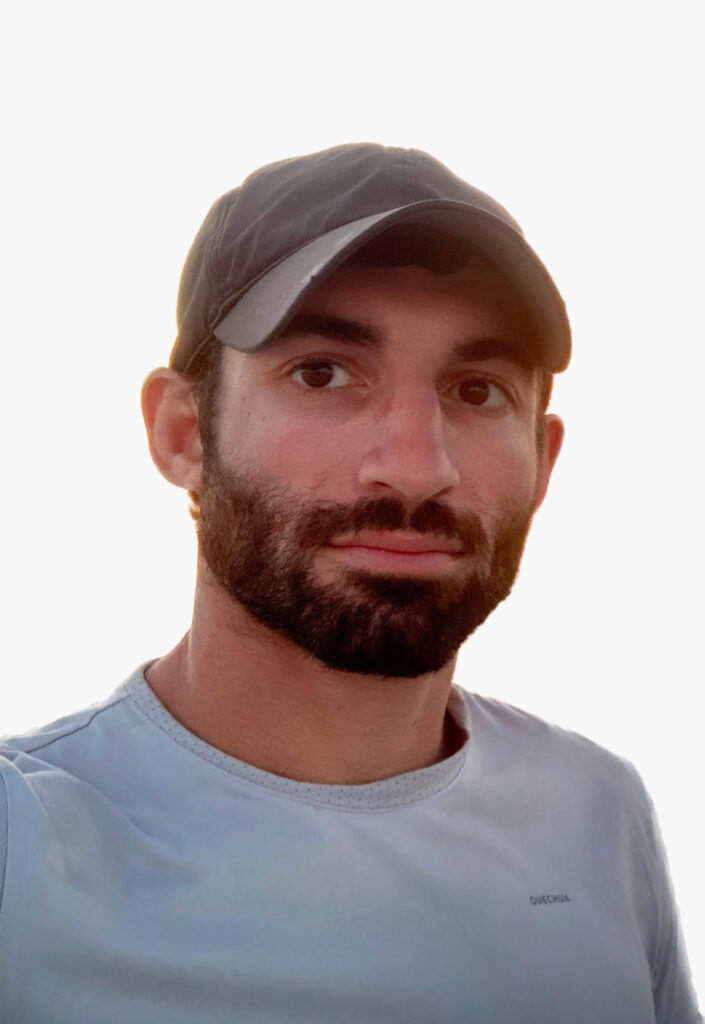
Your correspondent has been communicating about the Israeli-Palestinian conflict with a family friend’s son since he made aliyah to Israel about 7 years ago. He is now making his opinions and beliefs known on national media so I think it is timely to share historical context about his beliefs. August 6, 2024
______
“Here are my thoughts… two IMPORTANT concepts to keep in mind when thinking about and discussing this issue.
First, there is A LOT of propaganda from both the Israelis and the Palestinians. Let me define propaganda. Each side has their real reasons for what they do and believe, but what they tell the world is not necessarily their real reasons, but instead what will make sense to you. They need to convince you, an American who cannot possibly relate to their situation, to take their side. So the Jews use the holocaust, saying Jews have faced antisemitism all over the world for all of history, and thus need a safe country of their own to live. This is partially true, but that’s not Zionism and that wasn’t the main reason either. The Palestinians list as their grievences: Boarders, settlements, Jerusalem as the capital, refugees. These are all legitimate grievances, but none of these are the main grievance. That means that even if Israel fixed every single one of these issues, there would not be peace because the main issue, which no American would relate with, has not been solved in their eyes.
Second, and I alluded to this in number 1, don’t ever assume that what makes sense to you, what is logical and obvious to you, is the same for the Palestinians. They come from a hugely different culture. Here is an example of what I mean, but using a different group that also was extreme. The Japanese during WWII. A mother would give her son a dagger before he went off to war in China and tell him that if he is captured, use this knife to kill himself. Death is infinitely better than the shame of being captured. And surrender or retreat is unthinkable. No American mother would ever do this. Now back to the Palestinians. They also have extreme views on martydom. But that’s not the only thing they view differently from you, there are thousands of other little examples. Just the other day someone said to me, “true, Iran is a threat, but they’d be crazy to attack Israel. They’d get obliterated by Israel or the Americans.” What he didn’t understand is that the ultra- religious Iran doesn’t calculate the pros and cons of a situation like you and me. They quite possibly will reject a deal that is too good to be true, and engage in a conflict that is ridiculously stupid and risky. Why? Because their values, life and death, motivation are different. I can think of more concrete examples if you would like, but I hope my point is clear. Real quick, a lighter example. I was with a guy, 23 years old, when he touched a dog for the first time in his life! Can you imagine that? Probably not. But most Muslims never touch dogs.
I’m all for peace. But you have to be realistic as well. Ghandi and MLK were great. Go pacifism! But that only worked because of the tolerance and morality of the US and British leadership. In Nazi Germany or Hamas’ Gaza, those guys would be dead in a minute.Gone without any influence whatsoever. Every situation is different and requires a unique approach that takes into consideration many variables of history, culture, time, place, and so much more. What worked and seems logical in one conflict is not necessarily applicable or usefull in another. And the Israeli-Palestinian conflict is intense and complicated.” [STETs not marked]
September 23, 2018
INTERVIEW with Aya Batrawy, on NPR July 9, 2024
STEVE INSKEEP, HOST:
What does an American Israeli soldier make of the war in Gaza and his role in it? NPR international correspondent Aya Batrawy and producer Eve Guterman have been speaking with one over the past year.
AYA BATRAWY, BYLINE: Howard Tobochnik never imagined himself a soldier.
HOWARD TOBOCHNIK: I come from a very liberal family. Like, I would never have joined the U.S. Army. And I don’t think my family was so happy about me joining the Israeli army either.
BATRAWY: The 33-year-old data analyst and statistician from Kalamazoo, Mich., wound up in Israel in his mid-20s after living in Japan. He loved it in Japan but felt out of place as a young Jew. That pull to belong led Tobochnik to Israel around seven years ago.
TOBOCHNIK: So you show up. You don’t speak Hebrew. You’ve never been to Israel. But you’re Jewish. So welcome home, they say, when you arrive.
BATRAWY: As a new immigrant, he wanted to fit in. He learned to speak Hebrew.
TOBOCHNIK: I still have an accent. I’ll always have an accent. But my personal views is if there wasn’t an army, there wouldn’t be a state of Israel, so.
BATRAWY: To serve his new country, he joined the military in Israel, where most Jewish citizens perform mandatory military service. Then October 7 came. Hamas-led militants broke out of Gaza and through Israel’s fortified security perimeter, killing nearly 1,200 people and taking around 250 hostages. Israel called up hundreds of thousands of reservists for war. Tobochnik, who serves in the Nahal Brigade, was sent into Gaza. The combat soldier’s role with the 162nd Division was to guard medical evacuations of soldiers and secure supply routes for weapons and spare parts. Here’s what he told me in January about that.
TOBOCHNIK: I mean, I was in north Gaza, and so there are no people left there, you know, Palestinians. They’d all, I guess, fled south or maybe the – if they were Hamas, they were hiding somewhere. There aren’t any buildings left in the north that aren’t somewhat destroyed. For me, it was kind of sad to see this just desolate area. I mean, you feel like you’re in a – you know, it’s like scenes from a zombie apocalypse movie, you know? It’s kind of eerie.
BATRAWY: As a data analyst, his mind is hardwired to see patterns and analyze. But four months into the war, he was still processing his part in it.
TOBOCHNIK: I wouldn’t want to have the illusion that there’s – that we’re not doing anything wrong or that no one’s dying. You know, I think it’s good to know the truth, what’s going on in Gaza. For me, it’s not – obviously, it’s not comfortable, and I don’t like the fact, but for – I mean, listen, you’re there. You justify what you’re doing by – in some way.
BATRAWY: He tells me he wasn’t involved in airstrikes and hadn’t even come face-to-face with any Palestinians in Gaza by this point. And he wondered what other options Israel’s government had. Before October 7, he’d been among the massive crowds protesting Prime Minister Benjamin Netanyahu and the far-right coalition. But now he was a soldier going in and out of Gaza.
TOBOCHNIK: You know, you’d come home. It’s an hour drive. You know, you’re in Gaza. You drive home. It’s an hour. We had guys who were in Gaza. They’d go home for a business meeting and come back the same day.
BATRAWY: There were even moments, he says, where he found comfort and meaning in being in Gaza.
TOBOCHNIK: It sounds bad to say, and I don’t want this to come off as insensitive to the suffering in Gaza, but I’ve met guys from all over Israel, and we’ve become very, very close. You’ve got a common mission. Sometimes it’s like camping. You’re out in the fresh air. I’m not – I mean, the air isn’t so fresh in Gaza because of the bombing, but the stars and the beach and you’re just kind of disconnected from, you know, the daily hustle of, you know, life.
BATRAWY: And he hoped all of it would lead to bringing Israeli hostages home. But when I met Tobochnik again in Israel in May, there was more to contemplate.
TOBOCHNIK: I mean, Israel is being accused of genocide. That’s a – that’s pretty serious, you know? I don’t think it is. But, yeah, I’m part of an army that is being charged with genocide. That’s no joke.
BATRAWY: He could see the death toll soaring in Gaza, climbing alongside the numbers of orphaned, wounded and starving children. And he’d seen Palestinians being displaced during one of his stops at an Israeli checkpoint in Gaza.
TOBOCHNIK: So it’s almost all women, children and elderly people. So the hard part is you’re standing back and just watching people go on their way and on their lives. You don’t know where they’re going, where they’re going to end up, if they’re going to survive. You have no clue.
BATRAWY: Last time we were talking, I was asking you kind of how you felt about the war and, like, your role in it. And you were like, I don’t really know yet. Have you had time to think about it?
TOBOCHNIK: Yeah, I mean, of course, I think about it. I don’t have a conclusion on exactly how I feel, what’s absolutely right, absolutely wrong. But there are certain times when war is necessary. Obviously, self-defense is an example. I don’t like when they call this war at this point a war of self-defense. We’re past that point. But in a vague sense, it’s what is the future?
BATRAWY: He tells me many things can be true at the same time. He believes Hamas is responsible for much of the suffering in Gaza but questions how Netanyahu’s running the war and what it will lead to.
TOBOCHNIK: No one in Israel thinks that the war is completely unjustified. Everyone thinks it’s justified. The question is, where do you draw the line? How many civilian casualties is acceptable?
BATRAWY: He says if the objectives of the war – to go after Hamas’ leadership and free the hostages – can’t be achieved…
TOBOCHNIK: Then what’s left to – why are more civilians need to die? They don’t.
BATRAWY: Tobochnik still has seven more years of reserve duty, but he’s expecting his first child soon. He’ll be needed more at home. And while he says he has no regrets, he wonders how much more he can give.
Aya Batrawy, NPR News, Tel Aviv, with reporting by Eve Guterman.
(SOUNDBITE OF SYML’S “WILDFIRE (PIANO AND VIOLIN VERSION)”)
INSKEEP: The story of one American Israeli soldier involved in the war in Gaza, an example of how this conflict is distant from us and also very, very close to us – also an example of how to cover a difficult story. Our colleagues have gone back to the same source again and again and again. It’s never a drive-by. It’s sustained attention to the story, which is what NPR is doing. We have many perspectives on this story, and you can find many more of them by going to the web – npr.org/mideast.
